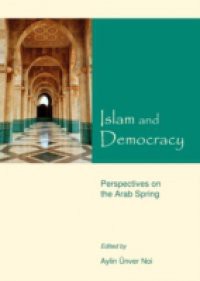The electoral success of Islamist parties in the Middle East and North Africa in the wake of the Arab Spring has been welcomed by their Islamist proponents that were under pressure from their former ruling regimes. However, their success has been met with concerns and fears by secularists and religious minorities in these countries. The question of whether this Arab Islamic awakening represents a step forward or backward for human rights and democracy came to the agenda because of the possibility of the marginalization of those rights by fundamentalists religious political parties or groups. This book explores changes in the Middle East and North Africa in the aftermath of the Arab Spring by giving a brief history of developments. It discusses the types of challenges that these countries have faced, and continue to face, during their democratic transitions. It offers readers a more complete overview of the complex and interrelated aspects of the Arab Spring and the roles of Islam and democracy in these ongoing developments.

